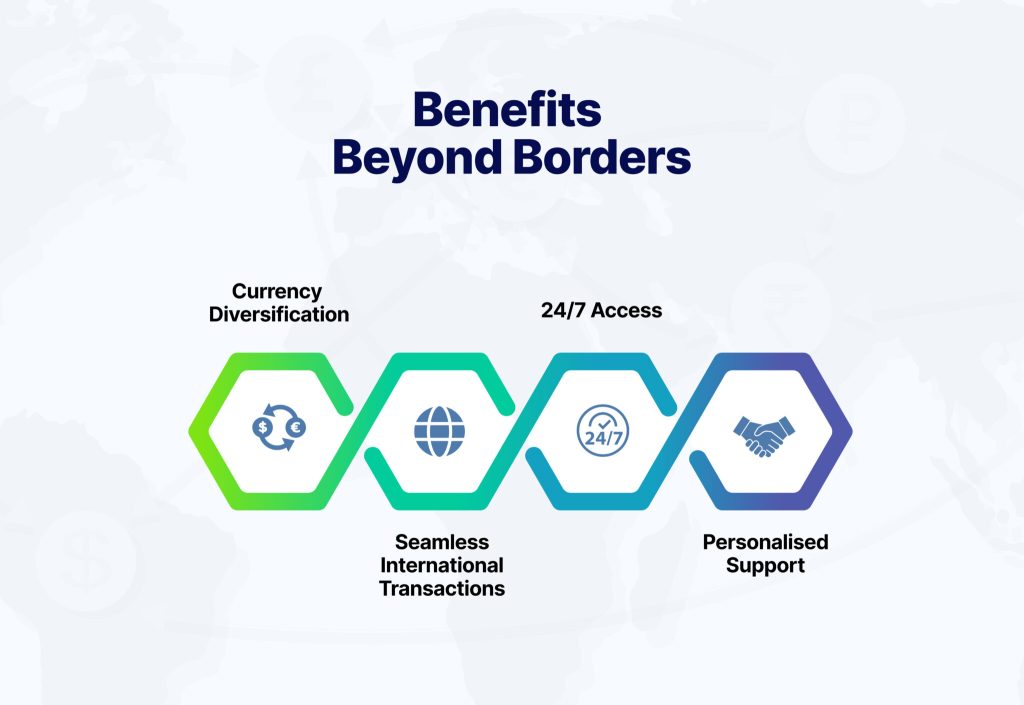Bank Account > Diaspora Banking Account
Introducing Mintyn’s diaspora banking account:
I. Are you a Nigerian with dreams that span beyond our borders?
II. Are you a Nigerian freelancer harnessing the power of the internet to work with foreign clients?
III. Do you have loved ones abroad or international business interests?
If you fall into any of these categories, Mintyn knows you need a reliable means to receive payment for your work in foreign currencies. You may also need to make some payments in foreign currencies. You can do all these things from the comfort of our dear homeland, Nigeria.
Mintyn is here to make it all happen with our innovative Diaspora Banking Account!

At Mintyn, we understand that your financial needs extend beyond the shores of Nigeria. That’s why we’ve crafted the Diaspora Banking Account, a bridge that connects you to international financial opportunities. Imagine having a bank account in the United States, Canada, or the United Kingdom—all from the comfort of your home in Nigeria!
How It Works
Mintyn acts as your trusted intermediary, partnering with leading banks in foreign jurisdictions to facilitate the account opening process. We take the hassle out of international banking, ensuring that you can focus on what matters most to you.
1. Swift Account Opening Process
Our streamlined process ensures a hassle-free account-opening experience. We partner with established foreign banks, and they determine the Know Your Customer (KYC) and account opening requirements.
However, we’ll provide the necessary guidance and assistance to help you meet the requirements. Your dream of holding a foreign bank account is just a few steps away!
2. Global Transactions, Local Convenience
Once your account is successfully opened, you gain access to a world of financial opportunities. Conduct your transactions in foreign jurisdictions, seamlessly managing your finances in USD, CAD, GBP, EUR, and more.
With Mintyn’s Diaspora Banking, managing your international funds has never been this convenient.
3. Link with International Payment Services
We understand the importance of flexibility. That’s why Mintyn allows you to link your account with international payment services like Payoneer and Paypal.
Send and receive funds across borders, giving you unparalleled financial freedom.
Benefits Beyond Borders

1. Currency Diversification
Protect your wealth from currency fluctuations by holding foreign currencies in your Diaspora Banking Account. Diversify your holdings and shield yourself from exchange rate volatility.
2. Seamless International Transactions
Whether it’s making payments, receiving funds, or managing investments, Mintyn’s diaspora account empowers you to navigate the global financial space with ease.
3. 24/7 Access
Your finances don’t sleep, and neither do we. Enjoy 24/7 access to your account through our user-friendly online platform. Monitor your transactions, check balances, and take control of your finances anytime, anywhere.
4. Personalised Support
Mintyn is more than a digital bank; we’re your financial partner. Our dedicated support team is here to assist you on your financial journey. Whether you have questions about your account or need guidance on the account opening process or international transactions, we’ve got you!
Your dreams know no borders, and neither should your finances. Mintyn’s Diaspora Banking Account is not just a financial service; it’s a ticket to global financial empowerment. Open your account today and step into a world where possibilities know no boundaries!
Explore our other bank account offerings.